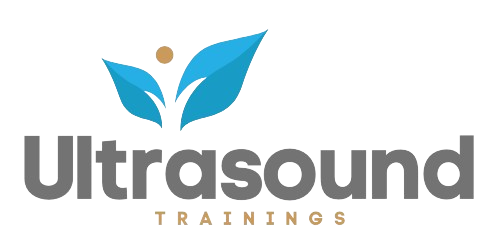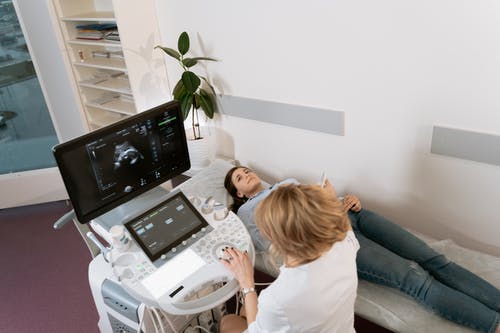Becoming certified in ultrasound is a significant achievement that can enhance your career and open new doors in the healthcare field. Whether you’re a midwife, nurse practitioner (NP), physician assistant (PA), or doctor, ultrasound certification can elevate your ability to provide superior patient care by improving your diagnostic capabilities. However, passing the ultrasound certification exam can feel daunting, especially if you’re juggling work and study commitments.
In this blog post, we’ll walk you through helpful tips and strategies to successfully prepare for and pass your ultrasound certification exam. With the right approach, you can feel confident and prepared on exam day.
1. Understand the Exam Format and Requirements
The first step to passing your ultrasound certification exam is to familiarize yourself with the format and content of the test. Certification exams vary based on the type of ultrasound and your area of practice, but most exams will test your knowledge in areas such as:
- Anatomy and physiology
- Ultrasound principles and technology
- Patient care and safety
- Imaging techniques and protocols
- Clinical applications in specific areas (e.g., obstetrics, cardiology, or musculoskeletal)
For example, the American Registry for Diagnostic Medical Sonography (ARDMS) offers certification exams in various specialties, such as Abdomen, Obstetrics/Gynecology, and Adult Echocardiography. It’s essential to know which exam you’re preparing for so you can focus your studies on the relevant topics.
Tip:
- Review the Exam Blueprint: Most certifying bodies provide an exam blueprint that outlines the specific areas you will be tested on. Use this as a guide to structure your study sessions.
2. Create a Study Plan
A well-structured study plan is key to staying on track and ensuring you’re fully prepared for the exam. When studying for your ultrasound certification, break down the material into manageable chunks, setting aside time each day to focus on different topics.
Study Plan Tips:
- Set Specific Goals: Break down your study material into specific sections, such as anatomy, ultrasound physics, or safety protocols. Assign a certain amount of time each day to focus on these sections to prevent feeling overwhelmed.
- Use a Calendar: Schedule your study sessions and stick to a timeline. Allocate more time to areas that feel more challenging, and build in regular review periods to reinforce your understanding.
- Study in Short Bursts: Studies suggest that studying in shorter, focused sessions (e.g., 30–45 minutes) with breaks in between is more effective than long, drawn-out study periods.
Tip:
- Consistency Is Key: Regular, consistent study is better than cramming at the last minute. Set aside time daily to go over key concepts to build long-term retention.
3. Leverage High-Quality Study Materials
Using the right study materials is essential to your success. Invest in trusted textbooks, online courses, practice exams, and study guides. The more diverse your study materials, the better prepared you’ll be for the various types of questions that could appear on your certification exam.
Recommended Study Materials:
- Review Books: Look for review books specifically designed for ultrasound certification exams. These often provide practice questions, detailed explanations, and key concepts.
- Online Practice Exams: Many organizations offer online practice exams or question banks. These simulate the real test experience and help you get used to the format and timing of the exam.
- Online Ultrasound Training Courses: Some ultrasound training providers offer focused exam preparation courses, which can give you a structured and comprehensive review of the material.
Tip:
- Choose Materials for Your Specialty: If you’re a midwife, nurse practitioner, PA, or doctor specializing in a certain area (e.g., obstetrics or cardiology), ensure your study materials focus on that area. For example, obstetric ultrasound materials will help midwives and OB-GYN practitioners focus on fetal development and imaging techniques, while cardiology-based resources will help those in heart health fields.
4. Practice with Real Ultrasound Equipment
The practical aspect of ultrasound certification is just as important as the theoretical knowledge. Familiarizing yourself with ultrasound equipment, understanding how to operate the machine, and practicing scanning techniques are crucial parts of your exam preparation.
Practical Tips:
- Hands-on Practice: If possible, practice using ultrasound equipment in a clinical setting or during your training. Familiarize yourself with scanning protocols, imaging techniques, and how to troubleshoot common issues that may arise during an exam.
- Simulated Exams: Some training centers offer simulated ultrasound exams, where you can practice real-time imaging and interpretations. This can help build your confidence and improve your skill set.
Tip:
- Collaborate with Mentors: If you have access to experienced ultrasound practitioners or instructors, ask for mentorship. They can offer invaluable guidance and provide tips for improving your technique.
5. Focus on Time Management
On exam day, managing your time effectively is essential to success. The ultrasound certification exam typically has a time limit, and answering questions quickly and accurately is key to completing the exam within the allotted time.
Time Management Tips:
- Practice Under Timed Conditions: Use practice exams and questions to simulate the time constraints of the real exam. Time yourself while answering practice questions to ensure you can pace yourself properly.
- Prioritize Questions: If you’re unsure about a question during the exam, mark it and move on. Focus on answering the questions you’re confident in first. You can always come back to the more difficult questions later.
- Stay Calm and Focused: Exam nerves are natural, but staying calm and focused will help you manage your time and work through the questions methodically.
Tip:
- Read Each Question Carefully: Ensure you fully understand each question before answering. Taking a moment to read carefully can save you time in the long run and reduce mistakes.
6. Review and Reinforce Key Concepts
As the exam day approaches, make time for regular review sessions to reinforce the material you’ve studied. This helps to keep key concepts fresh in your mind and increases retention.
Review Tips:
- Flashcards: Use flashcards to review key concepts, especially for anatomy and ultrasound terminology. You can create physical cards or use apps like Quizlet for easy, on-the-go review.
- Group Study Sessions: Consider forming a study group with colleagues or fellow students. Discussing complex topics with others can deepen your understanding and highlight areas that may need more attention.
- Practice Problem-Solving: Work through practice questions, case studies, or sample imaging scenarios to test your problem-solving and diagnostic skills.
Tip:
- Teach What You’ve Learned: Teaching someone else key concepts or explaining ultrasound techniques to a colleague is one of the best ways to reinforce what you’ve learned.
7. Take Care of Yourself
Finally, remember that your mental and physical health are just as important as your study efforts. Managing stress, getting enough rest, and staying healthy will help you retain information and stay focused during your exam.
Wellness Tips:
- Get Enough Sleep: Sleep plays a crucial role in memory retention. Ensure you’re getting 7-9 hours of sleep a night, especially in the days leading up to your exam.
- Stay Active: Exercise can help reduce stress and boost focus. Even a short daily walk or stretching can improve your mental clarity.
- Eat Well: Fuel your body and brain with nutritious food that supports cognitive function. Avoid heavy meals or too much caffeine on exam day.
Conclusion: Stay Confident and Prepared
Preparing for your ultrasound certification exam can be challenging, but with the right strategy, study plan, and resources, you can pass with flying colors. As a midwife, nurse practitioner, physician assistant, or doctor, ultrasound certification will enhance your skills, expand your career opportunities, and improve patient care.
Remember to stay organized, manage your time wisely, and focus on mastering both the theoretical knowledge and practical skills. With hard work, determination, and the tips outlined above, you’ll be well on your way to achieving ultrasound certification and advancing your professional career.
At Ultrasound Trainings, we offer ultrasound training and certification programs designed to help healthcare professionals like you succeed. Contact us today to learn more about our courses and how we can support you in passing your ultrasound certification exam!


